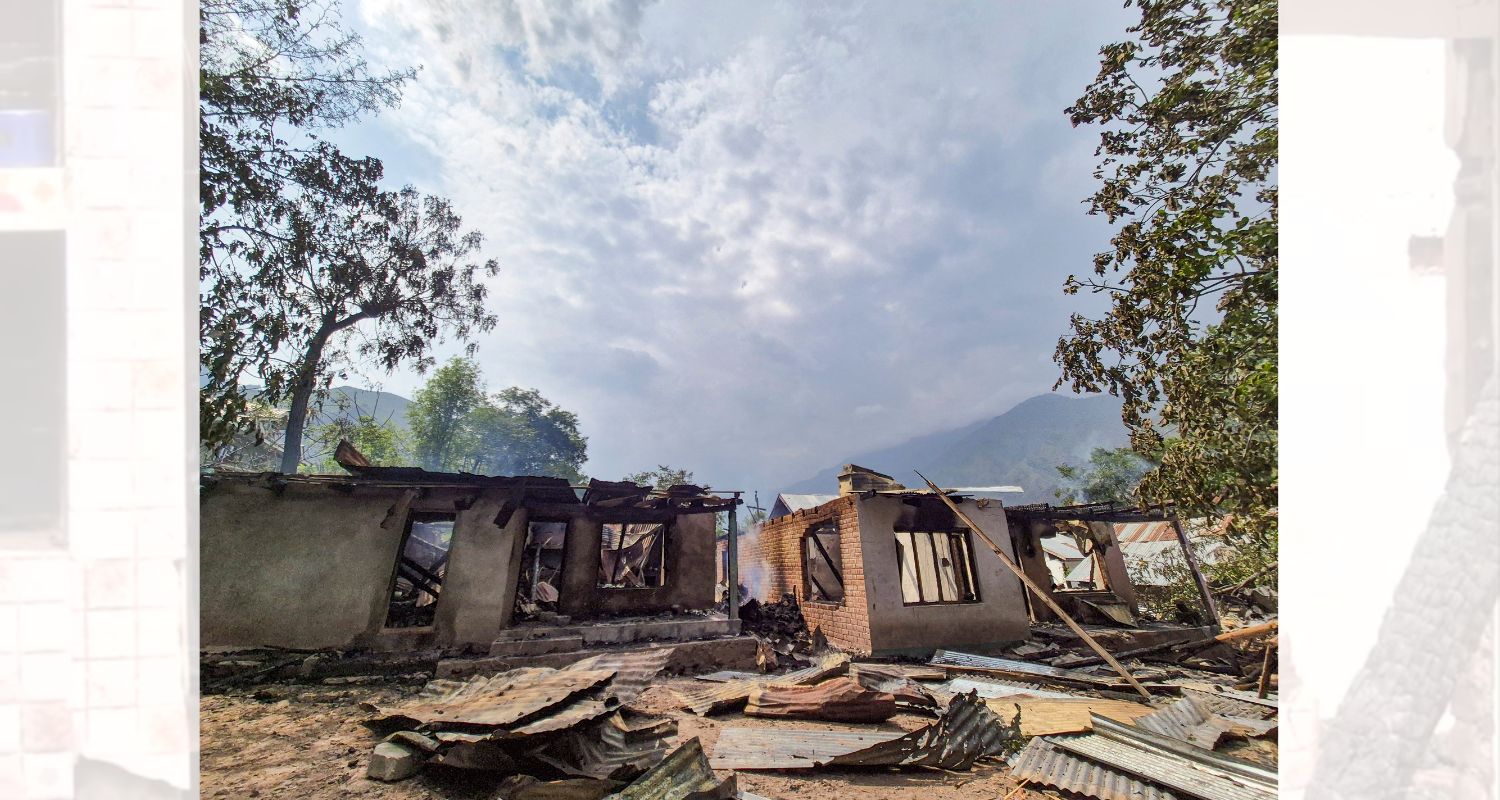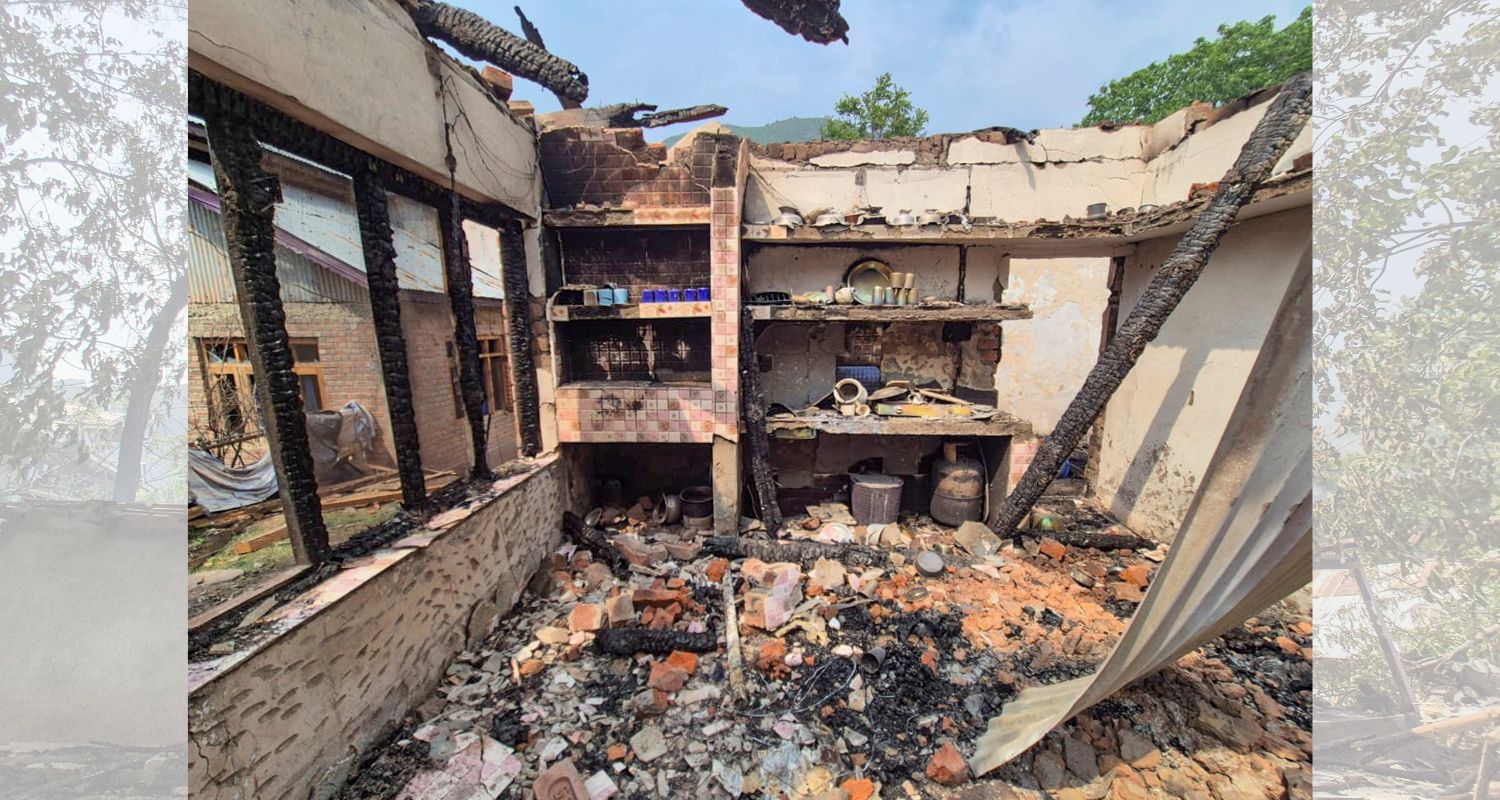Fifteen Indians were killed and 43 others injured in Jammu and Kashmir’s Poonch and Tangdhar regions after Pakistan launched heavy shelling and indiscriminate firing along the Line of Control (LoC) and International Border (IB) late Tuesday night, the Indian Army reported.
This response came shortly after India executed 'Operation Sindoor,' which involved precision strikes on nine terrorist camps in Pakistan and Pakistan-occupied Kashmir (PoK). The operation lasted 25 minutes, beginning at 1:05 am, and targeted camps associated with the terrorist outfits Jaish-e-Mohammed, Lashkar-e-Taiba, and Hizbul Mujahideen.
The Pakistani shelling caused significant destruction in the areas along the LoC and IB. Visuals from the affected regions showed houses reduced to rubble, with debris scattered everywhere and broken glass from shattered windows marking the impact.

In response to the cross-border firing, the Indian Army swiftly retaliated, inflicting considerable damage to multiple Pakistan Army posts in the Kupwara and Rajouri-Poonch sectors, with reports indicating heavy casualties among Pakistan’s military forces.
The Shiromani Akali Dal (SAD) chief Sukhbir Singh Badal condemned the Pakistani shelling, revealing that among the 15 killed were three Gursikhs who were attacked when Pakistani forces targeted the central Gurdwara Sri Guru Singh Sabha Sahib in Poonch district. The victims, Bhai Amrik Singh Ji (a raagi Singh), Bhai Amarjeet Singh, and Bhai Ranjit Singh, were among those killed in the attack.
"The Shiromani Akali Dal expresses complete solidarity with the families of the deceased Gursikhs and prays for peace for the departed and courage for their loved ones. We demand that the martyrs be honoured for their sacrifice and that the bereaved families receive adequate compensation to support them in their time of grief," Badal stated on X. He further emphasised that the Sikhs have always stood with India’s armed forces and are ready to fulfill their patriotic duties in the face of any threat.
In light of the escalating violence, Union Home Minister Amit Shah ordered the evacuation of civilians living near the LoC and IB. Shah, in constant communication with Border Security Force (BSF) Director General Daljit Singh Chawdhary, Jammu and Kashmir Lieutenant Governor Manoj Sinha, and Chief Minister Omar Abdullah, directed authorities to move civilians to safer locations, stressing that their safety is India's top priority.
India described its strikes as part of 'Operation Sindoor,' which was deemed a "focused, measured, and non-escalatory" move. The operation aimed to dismantle the infrastructure in Pakistan and PoK from which attacks against India had been planned and launched. The government’s statement emphasised that these strikes were a response to ongoing terror threats and were carried out with precision and accountability.

Among the significant targets were the Subham Allah camp in Bahawalpur and Masjid wa Markaz Taiba in Muridke, both of which are strongholds of Jaish-e-Mohammed and Lashkar-e-Taiba. Other targets included the Gulpur, Sawai, Bilal, Kotli, Barnala, Sarjal, and Mehmoona camps. Visuals exclusively shared by India Today showed the Subhan Allah camp reduced to rubble following the airstrikes.
Jaish-e-Mohammed chief Masood Azhar reportedly stated that 10 members of his family, including his elder sister and her husband, along with four close associates, were killed in the strikes.
Sources confirmed that all nine targeted sites were successfully hit, and the Air Force pilots involved in the operation returned safely. The strikes are believed to have resulted in the deaths of over 80 terrorists linked to the three militant groups, marking a significant blow to their operational capacity.
Also Read: India hits 9 terror camps in 25 mins, prepared for fallout




